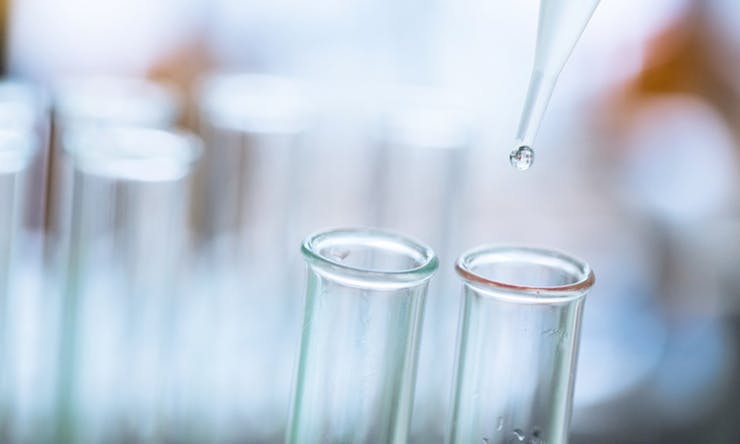Washington state’s cannabis testing laboratories are expected this week to announce the formation of the Washington Cannabis Laboratory Association, one of the industry’s first self-policing lab groups, in an effort to help standardize cannabis testing in the state.
The industry has come under fire recently after allegations of business-friendly results and limited oversight by regulators. The new group, which came out of a recent meeting between the Washington State Liquor and Cannabis Board (LCB) and the state’s 11 licensed cannabis testing labs, hopes to address that.
According to an advance copy of a press release about the new association, the bulk of state-certified testing labs have already signed on. But opinions are mixed as to whether the self-policing plan will work.
Serious questions about cannabis testing in Washington arose in the wake of a recent review of state testing data by Jim MacRae, founder of data analysis firm Straight Line Analytics. The data showed “some very odd things,” MacRae said, “things that are statistically unlikely to be occurring in the universe as we know it.” One such thing: Over the course of a three-month period, some labs hadn’t failed a single sample for microbial contamination.
Bobby Hines, co-owner of Confidence Analytics, a state-licensed testing laboratory, further analyzed the data MacRae used and found even odder things. Breaking down the failures by cannabis producer, he noticed three that, after switching from his lab to others regarded as being more lax about enforcement, saw their microbial failure rates drop to zero — and stay there.
One of the labs that issued zero failures has since closed, and Hines said customers returning to his lab have been shocked by the high failure rates they’re now seeing.
Hines called the new, self-policing Washington Cannabis Laboratory Association a “response to an apparent inadequacy of current regulation.” Washington, while it publishes detailed requirements for lab accreditization, has not yet required proficiency testing, a quality-control method that tests laboratories by giving them samples with known properties and then checking their results against a third-party lab.
More trustworthy testing would not only protect consumers, said Gordon Fagras of testing lab Trace Analytics, but also encourage them to move away from the black market. Microbial contamination “does kill people” he said. “The whole legal weed economy depends on the laboratories. People need to wake up.”
Consistency among the state’s labs would also remove financial incentives for testers to turn a blind eye to contamination. Labs with higher failure rates complain less-stringent labs are costing them business. “I lost about $1.5 million in sales last year,” Fagras said.
The newly announced Washington Cannabis Laboratory Association would be unique among states that have legalized recreational use — in part because other states have taken tougher stances on testing.
Colorado lawmakers passed a bill in 2015 that tasked the state health department with developing lab standards and implementing proficiency testing. Cannabis-testing lab CMT Laboratories helped push for the bill after working with three other labs to establish a set of standards for cannabis. Colorado law now requires each lab to participate in an approved proficiency testing program.
In Oregon, where they’ve dealt with similar lab standardization troubles, proficiency testing is also required. Cannabis testing labs must attain accreditation through the Oregon Environmental Laboratory Accreditation Program (ORELAP), which requires twice-yearly proficiency testing.
Fagras, at Trace Analytics, said regulators in Washington seem stretched too thin to help. Labs launching a self-policing scheme seemed like the only solution.
“They’re trying, but they don’t have a lot of science staff,” he said. “I don’t think they have any science staff. They rely on us, and that’s why we have to be better.”
But not everyone’s so sure about the new organization. MacRae, who cast doubts on state testing with his data analysis, was skeptical. He compared the setup to the fox guarding the henhouse.
“Is that a situation in which you would want those entities to be policing themselves?” he asked, wondering why the state hasn’t jumped in instead. “If I can do this, I suspect they can. I have shared my results with both RJ Lee [which currently oversees state accreditation for labs] and the LCB. I have heard nothing from the LCB, and heard nothing but a ’Thank you very much, we appreciate input from the public’ kind of note from RJ Lee.”
Hines noted that, while it is technically a self-policing group, the “self” part might be a little misleading, as the individual labs won’t be checking their own results.
“We are currently scheduled to undertake an inter-laboratory comparison of results, also known as a ‘demonstration of proficiency,’” he explained, adding that the process will be administered and validated by a third-party laboratory. “The labs return their results to the third-party lab, who posts the results of all labs so we each may see how close we are to the precise known quantitation.”
Hines also said both the LCB and RJ Lee were at least marginally involved with the group. RJ Lee will act as something of a referee for the group’s proficiency testing efforts, he said, while the LCB will handle enforcement when problems arise. Both the LCB and the lab group, he added, would be conducting secret shopper stings on labs.
Fagras at Trace Analytics praised the hybrid model, saying he welcomed secret shopping and transparency between labs.
“I want people to drop standards in my lab, not knowing who they are, and those samples going back to the state to reproduce,” he said. “I welcome criticism.”
Correction: A previous version of this story misspelled the surname of analyst Jim MacRae.








